Cosmology
-
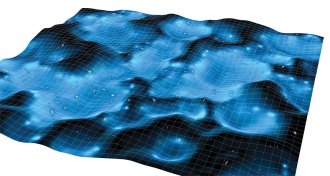 Cosmology
CosmologySimulating the universe using Einstein’s theory of gravity may solve cosmic puzzles
Better simulating the dense parts of the universe could improve scientists’ view of how the universe evolves.
-
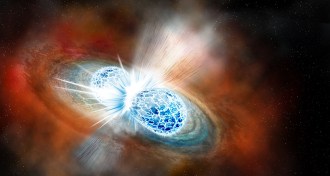 Cosmology
CosmologyWhat detecting gravitational waves means for the expansion of the universe
The latest LIGO signal proves that gravitational waves travel at the speed of light, ruling out a swath of cosmological theories in the process.
-
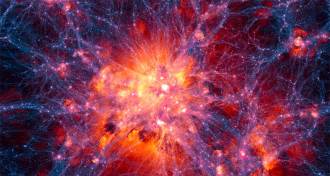 Astronomy
AstronomyHow to make the cosmic web give up the matter it’s hiding
Half the ordinary matter in the universe is unaccounted for. Astronomers may now have a new way to see it spanning the space between galaxies.
-
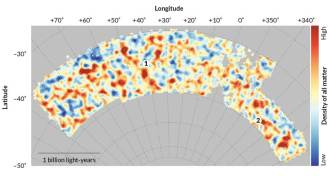 Cosmology
CosmologyMap reveals the invisible universe of dark matter
The Dark Energy Survey reports a new tally of the dark universe.
-
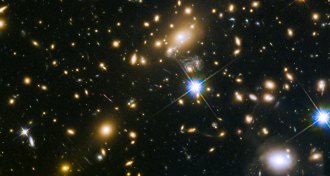 Astronomy
AstronomyThe most distant star ever spotted is 9 billion light-years away
A bright blue star sends its light from two-thirds of the way across the universe, thanks to a chance alignment with a galaxy cluster.
-
 Astronomy
AstronomyAstronomers get glimpse of star 9 billion light-years away
A bright blue star sends its light from two-thirds of the way across the universe, thanks to a chance alignment with a galaxy cluster.
-
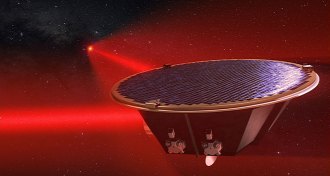 Astronomy
AstronomySatellite trio will hunt gravitational waves from space
The European Space Agency has green-lighted the Laser Interferometer Space Antenna, expected to launch in 2034.
-
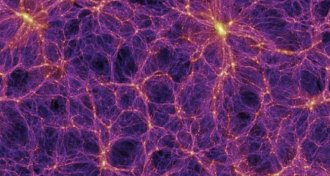 Cosmology
CosmologyMilky Way’s loner status is upheld
Galaxy surveys show the Milky Way lives in a vast cosmic void, which could help ease tensions between ways of measuring how fast the universe is expanding.
-
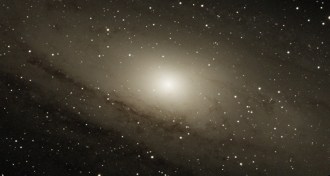 Science & Society
Science & SocietyEinstein’s latest anniversary marks the birth of modern cosmology
A century ago, Einstein gave birth to modern cosmology by using his general theory of relativity to describe the universe.
-
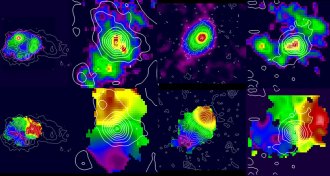 Astronomy
AstronomyDistant galaxies lack dark matter, study suggests
Slower-than-expected velocities of stars in distant galaxies, if confirmed, could reshape astronomers’ ideas of galaxy formation and evolution.
-
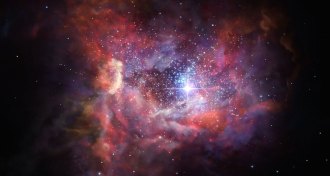 Astronomy
AstronomyAstronomers detect oldest known stardust in distant galaxy
The first stardust ever generated in the universe may have been spotted in a distant galaxy, seen as it was 600 million years after the Big Bang.
-
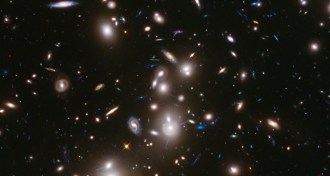 Astronomy
AstronomyFaint, distant galaxies may have driven early universe makeover
Gravitational lensing has revealed extremely faint galaxies in the early universe, suggesting these tiny galaxies were responsible for cosmic reionization.